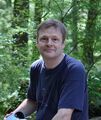Template:Selected anniversaries/April 7: Difference between revisions
Jump to navigation
Jump to search
No edit summary |
No edit summary |
||
| (19 intermediate revisions by the same user not shown) | |||
| Line 1: | Line 1: | ||
<gallery> | <gallery> | ||
File:Hasan Tahsini.jpg|link=Hasan Tahsini (nonfiction)|1811: Astronomer, mathematician, and philosopher [[Hasan Tahsini (nonfiction)|Hasan Tahsini]] born. He will become one of the most prominent scholars of the Ottoman Empire of the 19th century. | File:Hasan Tahsini.jpg|link=Hasan Tahsini (nonfiction)|1811: Astronomer, mathematician, and philosopher [[Hasan Tahsini (nonfiction)|Hasan Tahsini]] born. He will become one of the most prominent scholars of the Ottoman Empire of the 19th century. | ||
File:Pieter Rijke.jpg|link=Pieter Rijke (nonfiction)|1899: Physicist and academic [[Pieter Rijke (nonfiction)|Petrus Leonardus Rijke]] dies. He explored the physics of electricity, and is known for the Rijke tube (which turns heat into sound, by creating a self-amplifying standing wave). | File:Pieter Rijke.jpg|link=Pieter Rijke (nonfiction)|1899: Physicist and academic [[Pieter Rijke (nonfiction)|Petrus Leonardus Rijke]] dies. He explored the physics of electricity, and is known for the Rijke tube (which turns heat into sound, by creating a self-amplifying standing wave). | ||
File:Tim_Cochran_Multnomah_Falls_Oregon_July_16_2012.jpg|link=Tim Cochran (nonfiction)|2014: Mathematician and academic [[Tim Cochran (nonfiction)|Tim Cochran]] born. He will contribute to topology, especially low-dimensional topology, the theory of knots and links and associated algebra. | |||
File: | |||
File:Dave_Arneson.png|link=Dave Arneson (nonfiction)|2009: Game designer [[Dave Arneson (nonfiction)|Dave Arneson]] dies. He co-created the pioneering role-playing game [[Dungeons & Dragons (nonfiction)|Dungeons & Dragons]] with Gary Gygax. | File:Dave_Arneson.png|link=Dave Arneson (nonfiction)|2009: Game designer [[Dave Arneson (nonfiction)|Dave Arneson]] dies. He co-created the pioneering role-playing game [[Dungeons & Dragons (nonfiction)|Dungeons & Dragons]] with Gary Gygax. | ||
</gallery> | </gallery> | ||
Latest revision as of 02:43, 8 April 2022
1811: Astronomer, mathematician, and philosopher Hasan Tahsini born. He will become one of the most prominent scholars of the Ottoman Empire of the 19th century.
1899: Physicist and academic Petrus Leonardus Rijke dies. He explored the physics of electricity, and is known for the Rijke tube (which turns heat into sound, by creating a self-amplifying standing wave).
2014: Mathematician and academic Tim Cochran born. He will contribute to topology, especially low-dimensional topology, the theory of knots and links and associated algebra.
2009: Game designer Dave Arneson dies. He co-created the pioneering role-playing game Dungeons & Dragons with Gary Gygax.



